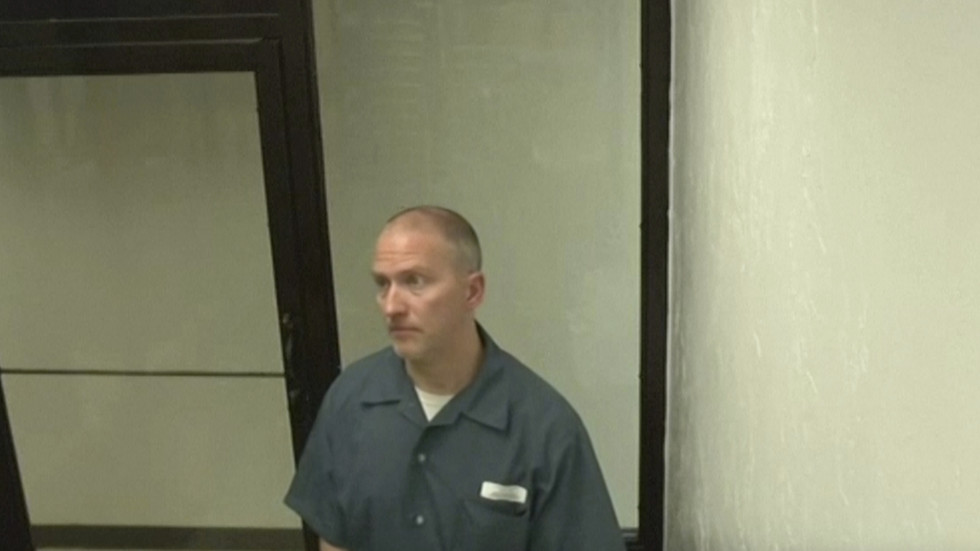Derek Chauvin, the former Minneapolis police officer, became a focal point of national and international outrage following the death of George Floyd in May 2020. Chauvin was convicted for the second-degree murder of Floyd, a Black man, after a widely circulated video showed him kneeling on Floyd’s neck for over nine minutes during an arrest. This disturbing incident led to widespread protests against police brutality and systemic racism, sparking a global movement for justice and reform. Currently, Chauvin is serving concurrent sentences, including a 21-year federal sentence for civil rights violations and over 22 years for the murder charge. His conviction is seen as a pivotal moment in addressing police misconduct in the United States.
In a recent development, Chauvin’s legal team was granted access to George Floyd’s heart tissue and fluid samples by Judge Paul Magnuson in Minnesota. This change comes as part of their efforts to appeal the 2020 conviction on grounds that the former officer’s defense attorney failed to present critical expert testimony related to the cause of Floyd’s death. Chauvin’s team is now exploring the claims made by pathologist Dr. William Schaetzel, who theorizes that Chauvin’s actions may not have directly caused Floyd’s death. Instead, he suggests that elevated levels of catecholamines, which are stress-related neurohormones, or an acute stress-induced heart condition called Takotsubo’s myocarditis could be responsible.
The initial autopsy conducted by the Hennepin County Medical Examiner revealed that Floyd had severe arteriosclerotic heart disease and hypertension, conditions that could contribute to cardiac events. The official ruling classified the death as homicide, explicitly citing “cardiopulmonary arrest complicating law enforcement subdual, restraint, and neck compression” as the cause. Notably, the toxicology report also indicated the presence of fentanyl and methamphetamine in Floyd’s system, which has been the subject of debate regarding their role in his death. Chauvin’s conviction was largely based on the video evidence and the accumulated testimonies surrounding the incident, which painted a clear picture of excessive force and a failure to provide medical assistance.
Chauvin was one of four officers involved in the arrest of George Floyd, and all have faced legal consequences related to the incident. The case brought to light concerns about police practices and accountability, igniting calls for reform in law enforcement agencies across the nation. The Black Lives Matter movement gained renewed momentum in the wake of Floyd’s death, mobilizing millions to advocate for racial justice and police reform. Chauvin’s trial marked a significant moment in this ongoing struggle, as many viewed it as a test of the justice system’s capacity to hold law enforcement accountable.
In an unexpected and violent turn, Chauvin experienced a near-fatal attack while serving his federal sentence at the Federal Correctional Institution in Tucson, Arizona. An inmate attacked him with an improvised knife, delivering 22 stab wounds. The assailant later stated that the choice of the attack’s date, Black Friday, was symbolically tied to the Black Lives Matter movement, highlighting the intense emotions surrounding Chauvin’s actions and their broader implications. Following the attack, Chauvin was hospitalized but managed to recover and was subsequently transferred to another facility for safety reasons. This incident underscores the ongoing volatility and divisiveness that his case continues to evoke within society.
As Chauvin’s legal team pushes forward with their appeals and seeks to overturn his convictions, the case remains a significant chapter in the ongoing dialogue about police violence, accountability, and systemic racism in America. The scrutiny of Floyd’s medical history and the re-examination of evidence reflect the complexities and controversies entwined in legal battles associated with high-profile cases. The attention on this case emphasizes the need for transparency and fairness in the judicial process, particularly when it involves issues surrounding race and law enforcement. The outcomes of such appeals could have far-reaching implications for both Chauvin and the broader movement for justice and reform.
The case of Derek Chauvin and George Floyd will likely continue to resonate within society as it encapsulates broader conversations regarding race, policing, and civil rights. As activists and communities persist in their demands for accountability and systemic change, the legacy of this tragedy is far-reaching, influencing legislative actions, public policy discussions, and community relations with law enforcement. The legal battles ahead will not only affect Chauvin’s future but will also impact the ongoing struggle for justice and equality for marginalized communities across the United States.

